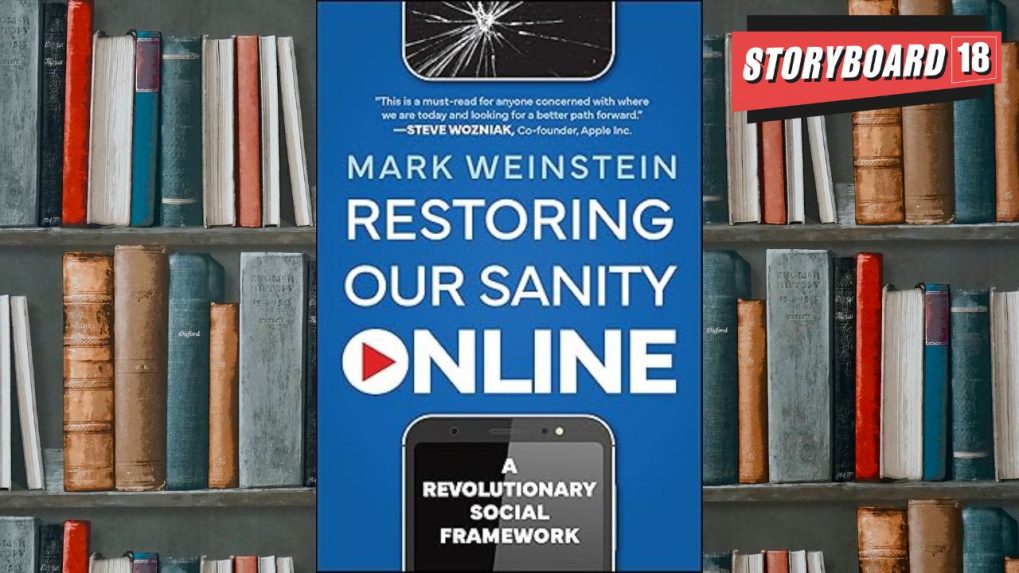Bookstrapping: Restoring our Sanity Online by Mark Weinstein
Restoring our Sanity Online by Mark Weinstein is a book about specific steps to a non-addictive life on social media; and if and how Government and Big Tech can champion this reboot, stated Reeta Ramamurthy Gupta in her review.
ADVERTISEMENT
Social media founder Mark Weinstein suggests 'reading books' to restore sanity online.
Weinstein founded Superfriends and Superfamily - the world's first social media networks in 1998. He is known as one of the founders of social media. So when he writes a book about "Restoring our Sanity Online," he speaks from a vantage point of at least 25 years of a ringside view, that very few people would've had.
This is a book about specific steps to a non-addictive life on social media; and if and how Government and Big Tech can champion this reboot.
Here are our five Bookstrapping insights:
1. 'The rise of surveillance capitalism' is one of the most thought provoking TED talks of all time. No marks for guessing that Weinstein delivered it. Here's an author with a strong world view and has had no problems picking a side.
2. Research suggests that it takes only four data points, specifically dates and times of purchases to determine someone's real identity online. This leads to the inference that since all social media is on the block chain, any entity can access it and target the user.
3. Both Web2 and Web3 have the facility to make people buy their way into your feed. This makes any propaganda the priority of the biggest spender. Scary!
4. The unfurling but unfulfilled promises of Web3 are highlighted. Why has Web3 not achieved scale despite incentives, is an important question.
5. I was particularly fascinated by Web 3 rewards system, which incentivises you to produce high-quality content and engage positively with others - you receive crypto from your peers as a reward system. This is more easily understood in the case of impersonal sites like YouTube and Reddit. But does it make sense to employ the same reward system on personal social networks? Besides, wherever there is a social incentive, bots become a very important part of the following, because it is surprisingly easy for one person to create multiple crypto wallets on a network and rake in the moolah!
Over 21 chapters of insights and questions, chapter 13, in particular, titled 'Saving our Kids From The Abyss,' made me reach out to the author. I asked Weinstein over an email interview, 'to what extent is encouraging our youth to read physical books going to help us 'restore sanity online'?' Here's his response.
I have a simple guidepost regarding books: "There is no such thing as 'too many books'!" I repeat this to my own kids often, nearly from the time they were born through any age. Parents can make sure their kids are always surrounded by books, from the school library, public library, and ones purchased or traded/swapped with other parents.
Just as importantly, do not provide any screen time (via phones, tv, iPads, etc.) to young children. The love of reading physical books is to be encouraged and nurtured so it can be embedded as a lifelong passion. Importantly, the content and selection of the books younger kids read requires some curation by teachers and parents, yet we also want youth to explore titles and ideas they're attracted to. Book reading is a lifelong skill that facilitates common sense and critical thinking, while injecting new ideas and stimulating their imaginations.
Back to old times then?
Reeta Ramamurthy Gupta is a columnist and bestselling biographer. She is credited with the internationally acclaimed Red Dot Experiment, a decadal six-nation study on how ‘culture impacts communication.’ On Instagram @OfficialReetaGupta
Read More: Bookstrapping: Versifying with Nadir Godrej

